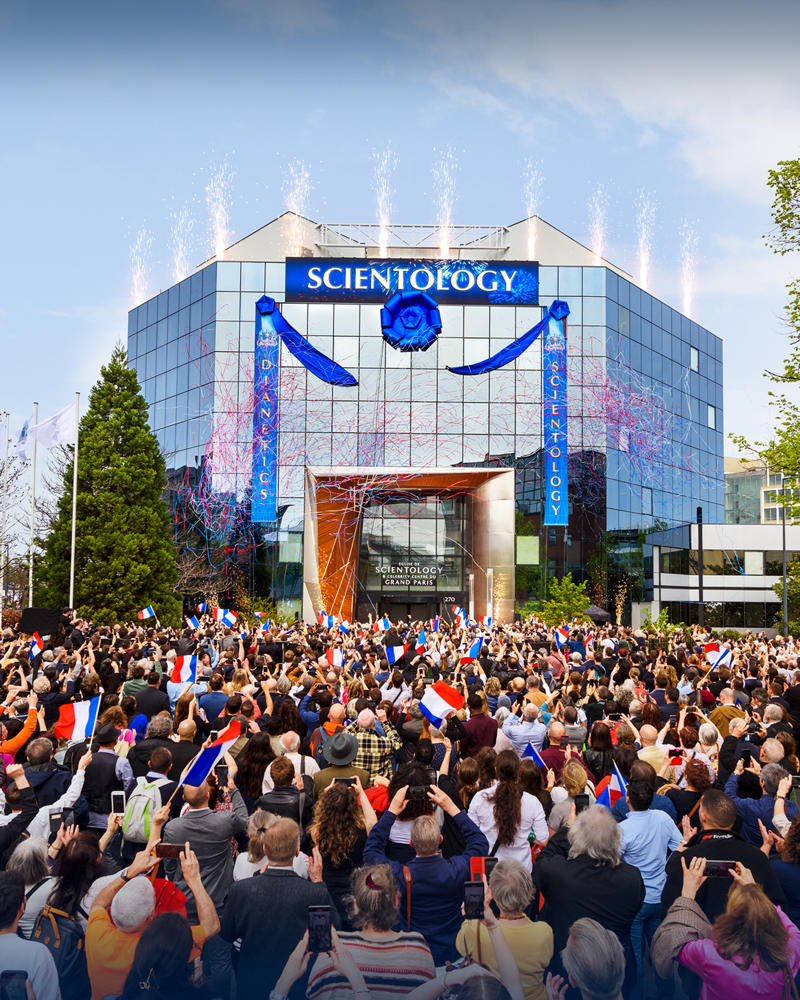The International Impact of Scientology: Development and Effect Worldwide
The International Impact of Scientology: Development and Effect Worldwide
Blog Article
Disproving Myths: Separating Truth From Fiction Concerning Scientology

Beginnings of Scientology
The beginnings of Scientology trace back to the mid-20th century when L. Ron Hubbard, a sci-fi writer, established the idea system in the 1950s. Hubbard's advancement of Scientology came from his earlier self-help system called Dianetics, which he presented in the 1940s - Scientology. The change from Dianetics to Scientology noted a change in the direction of a more extensive religious approach that integrated facets of psychology, Eastern spiritual practices, and Hubbard's very own concepts on human existence
Hubbard's exploration into the human mind and spirit resulted in the development of Scientology as a religious beliefs centered around the idea of spiritual enlightenment and self-improvement through a process called auditing. Auditing, a form of spiritual counseling, intends to aid people conquer mental and psychological obstacles, called engrams, that hinder individual development and understanding.
As Hubbard's mentors obtained appeal, Scientology advanced into an international motion with a significant following. Regardless of debates and criticisms surrounding its practices and ideas, Scientology remains to bring in followers seeking spiritual gratification and personal growth.
Core Ideas and Practices

An additional basic facet of Scientology is the principle of the Thetan, the spiritual significance of a person that transcends the physical body. Followers intend to understand and reinforce their link to the Thetan with different methods such as study courses and filtration routines.
The Church of Scientology likewise puts a strong emphasis on the importance of individual duty and the belief that individuals have the power to form their very own destinies. Through adherence to moral standards and the quest of self-improvement, specialists of Scientology strive to attain better levels of happiness, success, and spiritual gratification.
Disputes and Criticisms
In the middle of Scientology's core ideas and methods lies a landscape noted by disputes and criticisms that have actually stimulated intense discussion and examination. One of the significant criticisms leveled versus Scientology is its secretive nature and the supposed exploitation of its members. If they attempt to leave, former members have actually spoken out concerning feeling pressured to give away large amounts of money to the Church and dealing with harsh consequences. Additionally, Scientology's condition as a tax-exempt spiritual organization in some nations has been a point of opinion, with critics suggesting that its practices are much more comparable to a company than a faith. Scientology.
One more location of controversy surrounds the Church's treatment of doubters and skeptics. Records have emerged of harassment, intimidation, and legal dangers routed at those that speak out against Scientology. This has increased worries concerning free speech and the organization's commitment to transparency and accountability.
While Scientology has vehemently rejected several of these claims, the conflicts and objections bordering the Church proceed to sustain public apprehension and analysis.
Scientology's Influence in Society
Scientology's impact prolongs to the world of mental health, where its sights on psychiatry and psychology have triggered arguments within the clinical neighborhood. In the world of home entertainment, Scientology's association with prominent celebs has brought focus to the religion, both favorably and adversely. The involvement of renowned figures in Scientology has, in some situations, offered to popularize the religious beliefs, while in others, it has actually drawn criticism and elevated questions regarding the church's ideas and techniques.
Debunking Common Misconceptions
The Church of Scientology is lawfully acknowledged as a faith in many countries, including the United States, where it has tax-exempt standing. Like other religious beliefs, Scientology supplies spiritual advice and practices for its members.
Another mistaken belief is that Scientology compels its participants to reduce ties with their households. In fact, the church stresses the importance of family relationships and encourages members to maintain healthy connections with their loved ones.

Final Thought
Finally, it is very important to separate fact from fiction when reviewing Scientology. By analyzing its origins, core ideas, disputes, and influence in culture, we can debunk usual misunderstandings surrounding this faith. It is crucial to come close to the topic with a vital and objective frame of mind in order to understand Scientology properly and without predisposition.
Rooted in a foundation of spiritual knowledge and personal development, Scientology's core ideas and practices incorporate a varied array of principles and rituals. Central to Scientology is the idea that humans are never-ceasing spiritual beings that have neglected their true nature. The participation of popular figures in Scientology has, in some cases, offered to popularize the faith, while in others, it has actually drawn objection and increased inquiries regarding the church's beliefs and practices.
The Church of Scientology is lawfully recognized as a religion in several countries, consisting of the United States, where it has tax-exempt condition. Like various other religious beliefs, Scientology provides spiritual advice and methods for its participants.
Report this page